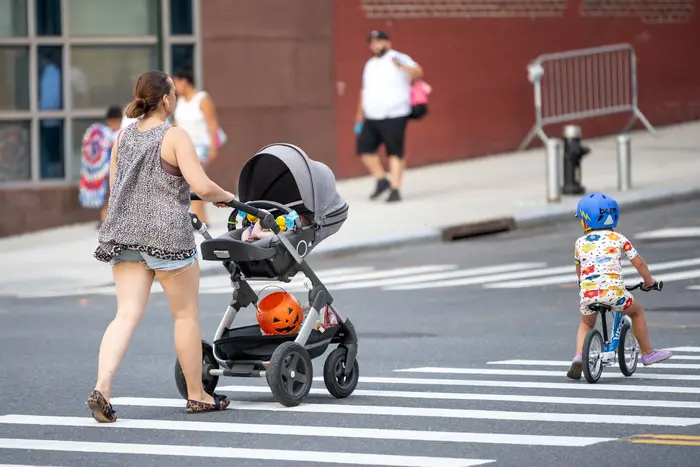Low-income pregnant women in New Jersey will soon receive cash payments with no strings attached, as part of a new initiative aimed at alleviating financial stress during the critical early years of child-rearing. The program, launched by **The Bridge Project**, will benefit 250 expectant mothers in the state, providing them with essential financial support during the first three years of their child’s life.
The Bridge Project, which has successfully implemented similar programs in **New York**, **Connecticut**, and **Massachusetts**, aims to enhance stability for families and ease the financial burdens faced by new parents. This initiative comes as many families grapple with rising costs related to childcare and food, alongside potential federal cuts to benefits for low-income households.
According to **Suzanna Fritzberg**, executive director of The Bridge Project, New Jersey consistently ranks among the most inequitable states in the United States. She noted that over **250,000 children** in the state live in poverty, with one in eight experiencing food insecurity. “The unconditional payment program aims to directly empower families by providing financial freedom to meet their unique needs at a time of ongoing economic precarity,” she stated.
Participants in the program will receive a one-time prenatal stipend of **$1,125**, followed by monthly payments of **$750** for the first **15 months**, and **$375** each month for the subsequent **21 months**. Applications for the program opened this week, and the first payments are expected to commence in **November 2023**.
To qualify for these payments, applicants must be residents of **Newark**, **Trenton**, **Paterson**, or **Gloucester**, **Salem**, or **Cumberland counties**, be at least **18 years old**, have an annual household income below **$44,000**, and be no more than **23 weeks pregnant**. Notably, a Social Security number is not a requirement for application.
Research from similar programs across various states indicates significant positive impacts on participants. The Bridge Project reported that **90%** of participants experienced improved mental health and reduced stress levels after receiving just one payment. Additionally, **64%** of mothers living in transitional housing transitioned to permanent housing within nine months of joining the program.
**Sandra Toussaint**, president and CEO of **United Way of Greater Mercer County**, emphasized the importance of supporting parents and newborns. “We know that giving parents and newborns a strong start is one of the most powerful ways to break cycles of poverty and build lasting stability,” she said. “For moms, this means less financial stress and more time to nurture their babies.”
This initiative represents a significant step toward addressing child poverty in New Jersey, offering crucial financial support to families during a challenging time. As the affordability crisis continues to affect many households, programs like this aim to provide immediate relief and foster long-term stability for the state’s most vulnerable residents.
